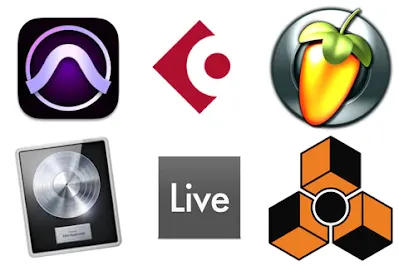Digital Audio Workstations (DAWs) are software applications used for recording, editing, and producing digital audio. They are essential tools for musicians, sound engineers, and producers working in various fields, including music production, film scoring, podcasting, and audio post-production.
DAWs provide a comprehensive set of features and tools that allow users to create, manipulate, and arrange audio tracks. Some common features found in DAWs include:
1. Multitrack Recording: DAWs allow for the simultaneous recording of multiple audio tracks or instruments onto separate tracks, enabling users to capture different elements of performance independently.
2. Editing and Arrangement: DAWs provide various editing tools to manipulate audio recordings, such as cutting, copying, pasting, and time-stretching. Users can arrange the recorded tracks, adjust their timing, and create complex compositions using a visual interface.
3. Virtual Instruments and MIDI: DAWs often include virtual instruments and synthesizers that can be played using a MIDI (Musical Instrument Digital Interface) controller or programmed using MIDI data. This allows users to create music using software-based instruments.
4. Audio Effects and Processing: DAWs offer a wide range of audio effects and processing tools, including equalization, compression, reverb, delay, modulation, and more. These effects can be applied to individual tracks or to the overall mix.
5. Mixing and Automation: DAWs enable users to mix multiple tracks together, adjust volume levels, pan positions, and apply effects to achieve the desired balance and spatial positioning. Automation features allow for precise control over parameters, such as volume, panning, and plugin settings, over time.
6. Virtual Studio Technology (VST) Support: Many DAWs support the VST plugin format, which allows users to extend the functionality of their DAWs by using third-party plugins. VST plugins can provide additional virtual instruments, effects, and processing tools.
Some popular DAWs in the industry include:
Pro Tools: Widely used in professional studios, Pro Tools is known for its advanced editing and mixing capabilities.
Logic Pro: An Apple-exclusive DAW, Logic Pro offers a comprehensive set of tools and virtual instruments for music production.
Ableton Live: Popular among electronic music producers, Ableton Live excels in live performance and loop-based production.
FL Studio: Favored by electronic and hip-hop producers, FL Studio provides a user-friendly interface and a wide range of built-in instruments and effects.
Cubase: Cubase offers a feature-rich environment for music production, composition, and scoring.
These are just a few examples, and there are many other DAWs available on the market, each with its own strengths and features. The choice of DAW often depends on personal preferences, workflow requirements, and the specific needs of the user.
